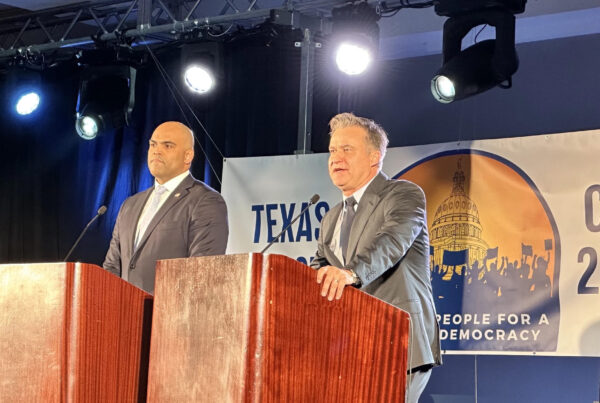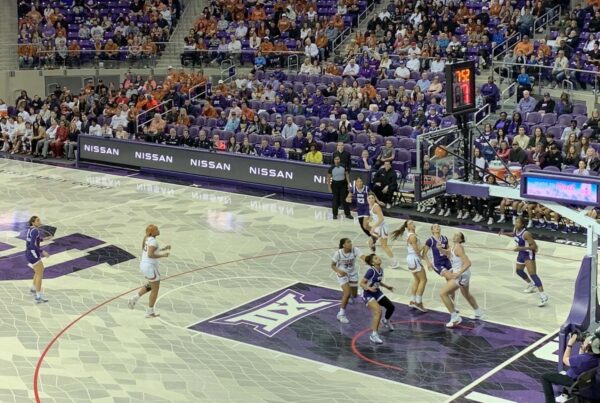The 2024 Major League Soccer season has begun. But its referees are still on the sidelines.
Members of a refs’ union called the Professional Soccer Referees Association rejected a labor agreement with the Professional Referee Organization. The group employs referees in leagues throughout the United States, including MLS.
The league started its season with replacement refs from lower leagues. Jimmy Maas, who reports on business and sports for KUT in Austin and co-hosts the upcoming soccer podcast ¡Vamos Verde!, spoke to the Texas Standard about the impact of the labor lockout.
This transcript has been edited lightly for clarity:
Texas Standard: So first match day comes this Saturday for Texas’ three teams. Austin the favorites to beat Minnesota; FC Dallas expected to beat San Jose; Houston Dynamo favorites over Sporting KC. Who’s going to be out there on the pitch enforcing the rules, though?
Jimmy Maas: Well, replacement referees. So all of these teams – Houston, Austin, Dallas –they’re all hosting home games this weekend. And they’re going to go with replacement refs.
Who are these replacements?
The league says that they are top-tier referees. Now as an example, last night, technically the Major League Soccer season began; Lionel Messi led Inter Miami over Salt Lake. They started with referee who was a former college soccer ref and then three referees – there are two assistants and a fourth official – they came from the USL Championship and MLS Next Pro, which, those are the second tier of U.S. soccer.
The union actually said that the replacements aren’t physically fit, that they lack the experience to conduct these upcoming games.
And, you know, to a degree, they might be right. I mean, there are levels of refereeing just like there are levels of anything in your life. You know, you take courses and you advance to the upper tier, the upper echelon. And in the U.S that is Major League Soccer.
And they rejected the union contract that PRO – the Professional Referee Organization, the league’s contractor for them – put forth because they said that it did not guarantee all of their job security that they already had. It froze wages. And there were some other claims that did not address travel. Now, these are not super high-paying jobs. And I mean, technically they’re part-time.
» GET MORE NEWS FROM AROUND THE STATE: Sign up for Texas Standard’s weekly newsletters
So the demands are not insignificant.
I think they’re a good ways apart, if you were to believe everything that is printed. Now, granted, this is part of the negotiation tactic, as that goes.
Yeah, but a lockout at the start of the season?
It’s not a good look. And the referees, these refs only make – I say only, but they make somewhere in the mid $30,000s to mid $50,000, technically part-time job or wages. But, you know, if you had to travel every Saturday, some Wednesdays from February to October, you’d need a very understanding, like we have here in public radio, to allow you to maintain a part-time job that would do that.
You talked about the two sides being far apart. Any expectation that this could be resolved soon – some kind of breakthrough?
So, soon is all relative. Probably not soon enough for this week. Most sports labor agreements kind of go this way – there’s a tipping point.
You might remember, there was a moment in Monday Night Football when the NFL was using replacement refs. There was a blown call in front of national TV. Two days later, they settled the agreement. It may be something like that that is required to push the league and the refs into a point of agreement.














